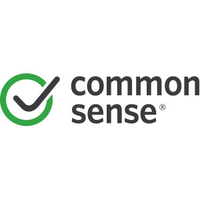Identity, social media and self-esteem
The pressures of growing up digital can have a major impact on children’s health and wellbeing. Parents may be concerned that social media is teaching their children that they’re not good enough because of the impossible standards which are set. Their exposure to carefully curated social media content, not just from celebrities, but by classmates and friends, can create unrealistic ideals. This prompts young people to make comparisons with their own life, and feel they often fall short of expectations and fail to measure.
Talk early and often with your child about the pressures of social media.
Some conversation starters to have with your child:
- Do you think your friends are really the people they appear to be online? Are you?
- What’s the purpose of posting a photo?
- What is it about getting “likes” that feels good?
- Does looking at social media affect your mood?
We recommend checking out these helpful articles in the Beacon app:
- How is body image affected by social media and going online? by Common Sense Media
- A new parent's guide to social media by Common Sense Media
- What I wish my parents knew about social media (video) by ReachOut Australia
Simply search these titles in the FOR YOU menu or type 'social media' for a full list of helpful articles and videos.
Is my child ready for social media?
Each social media site has its own criteria for minimum age requirements. Most require users to be at least 13 years of age before they can register to comply with the Children’s Online Privacy Protection Act (COPPA), although some sites are created for younger children.
Here are some questions to help determine your child’s readiness for social media:
Is your child able to deal with negative online experiences?
Look through online profiles and public feeds together and talk about how some people behave differently online. Teach them how to filter abusive comments, block and report people.
Does your child understand the importance of protecting their personal information?
Start by describing what personal information is. Emphasise that it includes anything that can identify them, such as their mobile number, email address or the name of their school.
Does your child understand how privacy settings for social media work?
Show your child how to view the privacy settings for each social media service you use and talk them through how you decided on which settings to use in your own accounts.
Does your child understand what is safe to share online?
Talk about the risks of 'checking-in', tagging people in photos, meeting online friends in person, making offensive comments, and what is not acceptable.
Is your child willing to let you establish clear rules?
Come to an agreement about your child’s social media use including check in times, what they can post, how often they can post and how much time they spend on social media.
Content source:
eSafety Commissioner "Are they old enough"
Does your child keep asking to use social media?
Though most social media has a minimum age of 13, a lot of kids start asking for it before they're technically allowed to join. Of course, this makes parents worried. But the truth is, lots of young people use social media and stay safe, healthy, and connected - especially when parents are supportive.
Talking - and listening - is key. Try to get more information about what they want to use, why they want to use it, and how much they know about potential risks without seeming intrusive.
Ask your child: What app(s) do you want to use and why?
- Follow-up: Is there anything in that app that isn't great? Anything you think I'd be worried about?
When young people are saying they want to use social media to stay connected to friends, that's a good sign. If their answer is more along the lines of trying to get famous or "showing off" in some way, it's more problematic - and could lead to risky behaviour in their search for online fame. Also, it matters which platforms your child wants to use, since each one comes with its own sets of features and challenges.
Ask your child: What kinds of communication don't belong on social media?
- Follow-up: So, in general, what do you think are good things to keep in mind before you post something?
It's good for young people to think about why they want to post something, who they're posting it for, and what expectations they might have about the reactions they'll get.
Ask your child: Do you know what to do if someone is mean, harasses you for pictures, stalks you, or does anything else that makes you feel uncomfortable?
- Follow-up: Can you walk me through the way your favourite app works and what the settings are?
You and your child need to understand the app they're using in terms of who can see their posts, who can friend/contact them, and how to use the settings to be as safe as possible. This is a good time to download their favourite app, have your child walk you through how to use it, and take a look at the settings together to make sure you’re both comfortable.
Content source:

